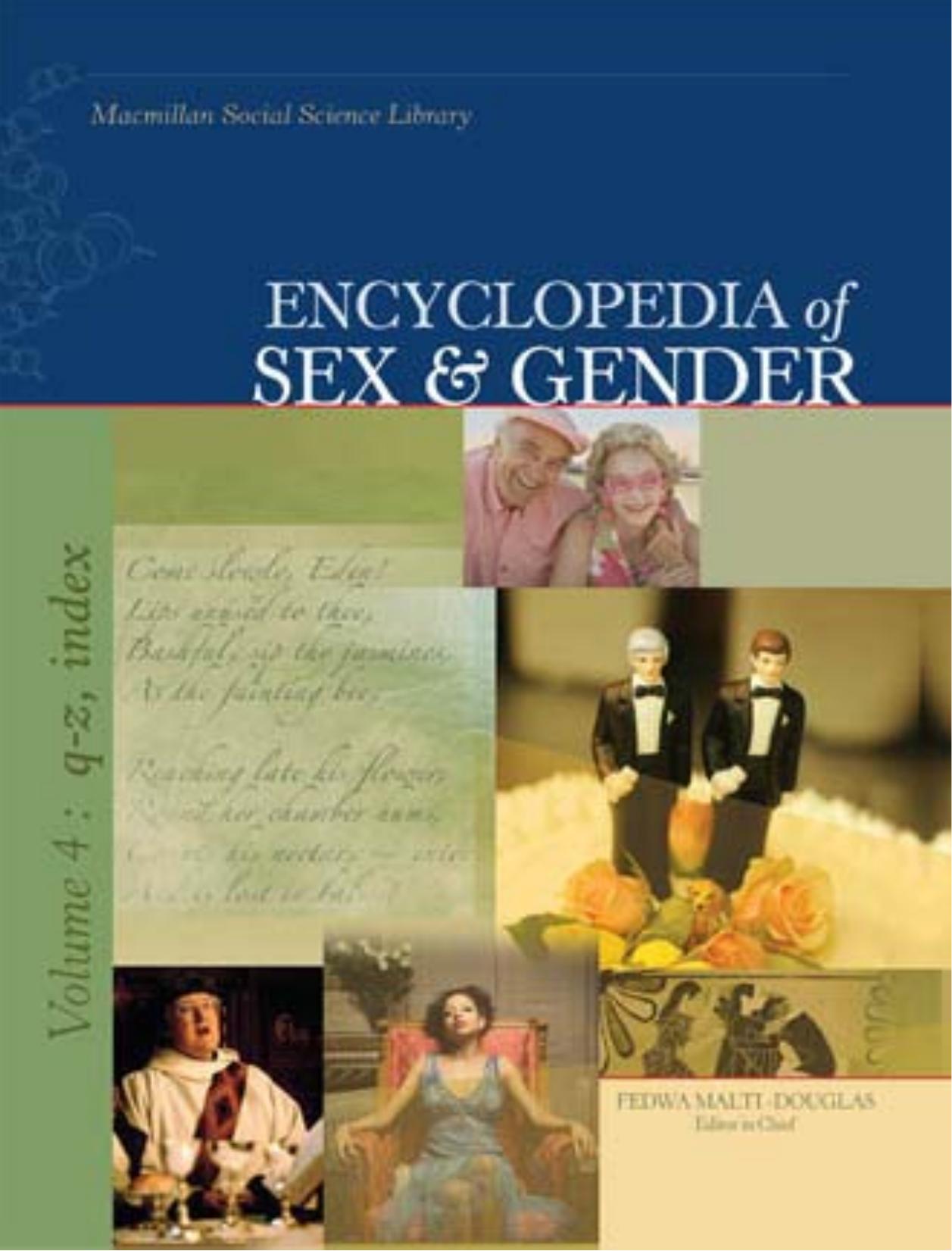Encyclopedia of Sex & Gender by Unknown

Author:Unknown
Language: eng
Format: epub, pdf
Tags: non.fiction
ISBN: 9780028659602
Publisher: MacMillan Reference Library
Published: 2007-08-23T00:00:00+00:00
Body, Theories of
against the conceptual entanglement of bodies as organ-in accordance with a threefold principle in which the isms and bodies as social phenomena.
differences between the levels of spirit and soul often were seen as more important than those between soul THE MIND-BODY DISTINCTION
and body. The pervasive influence of Christian doctrine in that period may have reinforced a Platonic devaluation Current critical analyses of the body usually take the of the (sinful) flesh in favor of the higher faculties of the eighteenth-century medicalization of the body or the sev-soul or spirit; the medieval fascination with the flesh did enteenth-century philosophical preoccupation with the not imply a simple rejection of the body to celebrate the mind-body distinction as their point of departure to call soul as a separate entity. That would have been a con-into question what has been characterized as the inalienable dualist nature of Western thought. There are prob-ceptual and a doctrinal impossibility in the context of a lems with both approaches. Although it may be claimed religion that revolved around the divine offering redemp-that from the ancient Greek philosopher Plato (427–347
tion by becoming flesh (Bynum 1995).
BCE) to the French philosopher, mathematician, and sci-Whereas early fourteenth-century theologians tended entist Rene´ Descartes (1596–1650) prevailing Western to follow Aquinas in positing the soul as that which carries notions of the body have evolved largely from a split the structure of a person if the body is absent, in the normal between mind and body, spirit and flesh, psyche and or desired situation personhood was thought to be deter-soma, there has been an alternative line of analysis in mined equally by body and soul. Rather than an unambig-which the immaterial aspects of human being have been uously dualist line running uninterruptedly through conceptualized as having an intrinsic interrelation with theories of the body from Plato to Descartes, it is more the matter of bodies, inseparable from the flesh.
accurate to suggest that the newly emerging mathematical As early as 360 BCE the Greek philosopher Aristotle and natural sciences spurred seventeenth- century philoso-
(384–322 BCE), investigating the soul and its properties phers to develop a rigorous theory of personhood that in De Anima, claimed that the soul is a ‘‘first actuality of would install the split between mind and body and continue a natural organic body’’ (Aristotle 1987, p. 60), thus to predominate in debates for the next three hundred years.
introducing a notion of nondualist embodied being that In an attempt to break free from the speculative neo-was taken up and elaborated on by a series of later Aristotelian notions of the person that had triumphed philosophers, including Baruch Spinoza (1632–1677), within the Catholic Church and the theological circles of Friedrich Nietzsche (1884–1900), and Giambattista his day, Descartes introduced a reduction of truth to that Vico (1668–1744).
which can be apprehended by the mind exclusively oper-Even in Plato the dualist mind-body distinction is ating with its own resources (Descartes 1984). Truth thus complicated by that philosopher’s additional supposition becomes the product of a self-referential system of
Download
This site does not store any files on its server. We only index and link to content provided by other sites. Please contact the content providers to delete copyright contents if any and email us, we'll remove relevant links or contents immediately.
Spell It Out by David Crystal(35865)
Life for Me Ain't Been No Crystal Stair by Susan Sheehan(35552)
Cecilia; Or, Memoirs of an Heiress — Volume 1 by Fanny Burney(32098)
Cecilia; Or, Memoirs of an Heiress — Volume 3 by Fanny Burney(31493)
Cecilia; Or, Memoirs of an Heiress — Volume 2 by Fanny Burney(31439)
The Great Music City by Andrea Baker(30943)
Professional Troublemaker by Luvvie Ajayi Jones(29451)
We're Going to Need More Wine by Gabrielle Union(18666)
Twilight of the Idols With the Antichrist and Ecce Homo by Friedrich Nietzsche(18328)
The Secret History by Donna Tartt(18277)
All the Missing Girls by Megan Miranda(14889)
Cat's cradle by Kurt Vonnegut(14811)
Pimp by Iceberg Slim(13831)
Bombshells: Glamour Girls of a Lifetime by Sullivan Steve(13722)
Fifty Shades Freed by E L James(12943)
Talking to Strangers by Malcolm Gladwell(12929)
Norse Mythology by Gaiman Neil(12887)
The Social Justice Warrior Handbook by Lisa De Pasquale(11972)
Underground: A Human History of the Worlds Beneath Our Feet by Will Hunt(11865)
